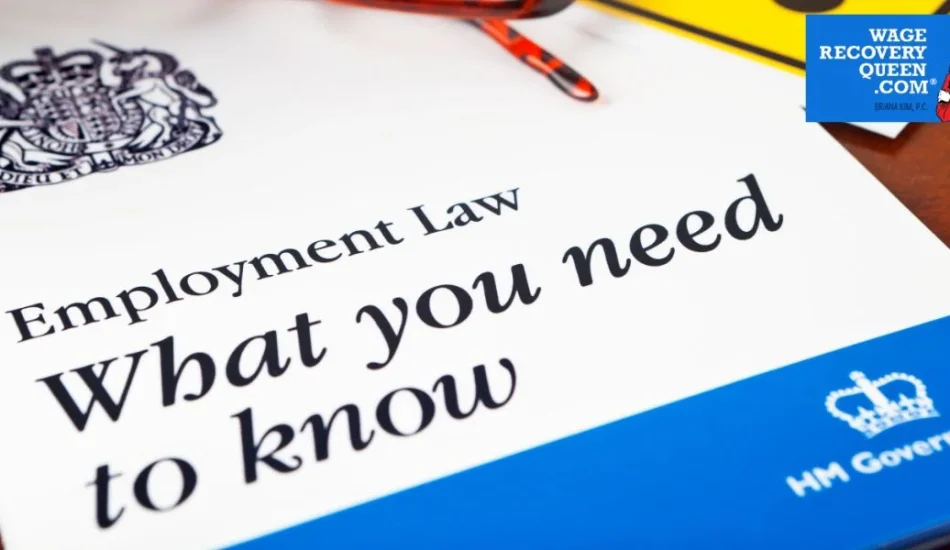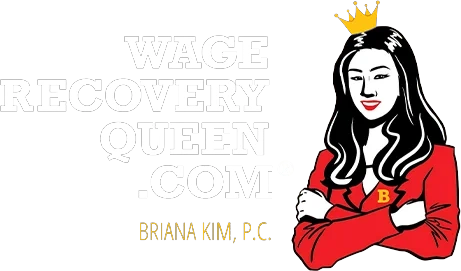At-Will Employment in California: What Employees Should Know


If you’re an employee in the Golden State, it’s important to understand the concept of at-will employment in California and what it means for your job security. Many employees don’t realize that they have the right to take legal action when their employer crosses the line. Luckily, the law protects workers from illegal terminations, discrimination, retaliation, and other unfair treatment, even in at-will jobs.
About Us
Briana Kim, PC, is a boutique law firm that focuses on employment law. Our team provides effective and aggressive legal solutions and outstanding personal service, taking the time to understand your unique situation and goals. With Briana Kim, PC, you have a trusted advocate in your corner every step of the way.
What Does At-Will Employment in California Mean?
In California, most jobs are considered at-will, which means that unless you have a written contract stating otherwise, either you or your employer can end the working relationship at any time and for almost any reason, or even for no reason at all.
Nationally, around 74% of all US workers are considered at will, and the unemployment rate currently stands at 4.3%, whereas CA’s unemployment rate is 5.3%.
That said, your employer can’t fire you for reasons that violate state or federal laws, like discrimination, retaliation, or other illegal motives. Knowing these limits under California employment laws can help you understand when a termination could have crossed the line.
Exceptions and Limitations: When At-Will Isn’t Absolute
Even though at-will employment is the standard in California, there are several key exceptions and legal protections that restrict when and how an employer can fire an employee, and they include:
-
- Express or Implied Contract ExceptionIf you have an employment contract that guarantees you can only be terminated for cause, and the at-will rule doesn’t apply. Courts could also rule that an implied contract exists based on the company’s policies, the employee handbook, or statements by supervisors promising continued employment. In these cases, employers must have a valid cause to justify termination.
- Implied Covenant of Good Faith and Fair DealingCalifornia courts recognize that every employment relationship carries an implied duty of good faith. This means employers can’t act in bad faith to deprive employees of earned wages, benefits, or bonuses, like firing you right before your commission is paid.
- Public Policy and Statutory ProtectionsAn employer can’t fire you for reasons that violate public policy or specific laws. Examples include:
- Reporting illegal conduct or workplace safety violations
- Refusing to participate in unlawful activity
- Taking protected leave under family or medical leave laws
- Serving on a jury or exercising other civic duties
California’s strong anti-retaliation statutes protect workers who assert their legal rights, report misconduct, or participate in investigations.
- Fraud and MisrepresentationIf an employer knowingly makes false promises, like guaranteeing job security, to entice you to accept or stay in a position, and later terminates you, you could have a claim for fraud or misrepresentation.
- Constructive Discharge
Even if you resign, your departure could still be legally considered a termination if your working conditions were intolerable. This is known as constructive discharge, and it can happen when an employer deliberately creates hostile or unsafe conditions to force an employee to quit.
Understanding these boundaries can help you see when a termination is legal and when it might be illegal. If you’re not sure about your rights, talking with an employment attorney can clarify your options and guide you in your next steps.
What Rights and Remedies Do Employees Have?
Employees still have strong legal rights that protect them from unfair or unlawful treatment at work. If your employer fires you for an illegal reason, you could be entitled to legal remedies. Under California employment laws, you could be entitled to compensation like:
- Lost wages and benefits
- Emotional distress damages
- Reinstatement of your job in some cases
An experienced employment lawyer can guide you through your legal options, help you file the right claims, and fight for justice on your behalf.
Hire an Employment Lawyer
When you hire an employment lawyer, they can guide you through the legal process, protect your rights, and help you achieve the most favorable outcome. They do this by:
- Reviewing the circumstances of your situation
- Explaining all your rights and options
- Handling all administrative filings
- Negotiating settlements
- Representing you in court
An experienced employment lawyer, like those at Briana Kim, PC, acts as your advocate at every stage of the process, helping you work through complicated employment laws and pursuing a fair resolution.
FAQs
Can My Employer Change My Job Duties or Pay Before Firing Me?
Yes, your employer can change your job duties or pay before firing you, so long as it doesn’t violate a contract or break state labor laws. However, if those changes are used as a way to retaliate or force you to quit, you could have grounds for a claim. Keep thorough documentation of any changes to your position or pay.
Do I Have to Sign an At-Will Employment Acknowledgment?
Employers often include at-will acknowledgements in offer letters or employee handbooks. Signing them simply acknowledges your understanding of at-will employment. Refusing to sign shouldn’t prevent you from being hired, but it could create unnecessary tension. Regardless of any signed acknowledgment, you still retain legal rights to pursue claims for unlawful discrimination, retaliation, and other violations under state and federal laws.
Can At-Will Employees Collect Unemployment if They’re Fired?
Yes, at-will employees can collect unemployment if they’re fired without misconduct, or if they quit for a good reason related to the job. If your employer contests your claim, the state agency can review whether your termination met the legal definition of misconduct. Keep records of your employment history and the circumstances of your termination to strengthen your claim.
What Should I Do if I Think I Was Fired Unfairly?
If you think you were fired unfairly, you need to start gathering evidence, like emails, texts, and the names of any witnesses. Request a copy of your personnel file from your employer. Write down the details surrounding your termination while they’re fresh in your mind. Then, speak with an experienced employment attorney who can assess whether your case falls under one of the recognized exceptions to at-will employment.
Your Advocate for Workplace Justice
At Briana Kim, PC, we’re dedicated to standing up for employees throughout California. We fight to ensure that workers are treated fairly, lawfully, and with respect at every stage of the employment relationship. Contact us today to schedule a consultation.



